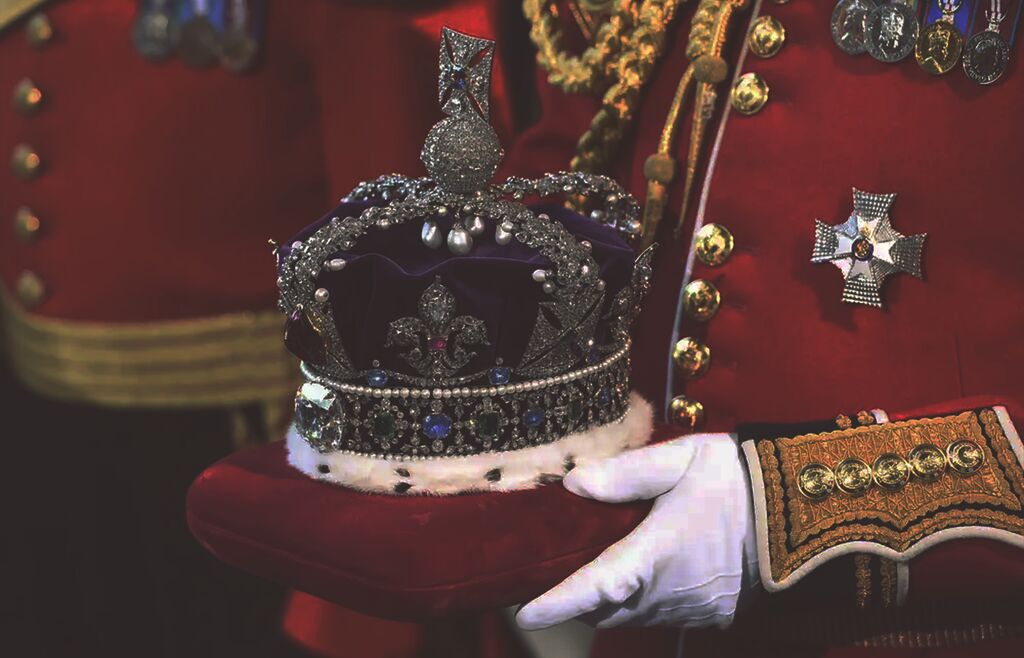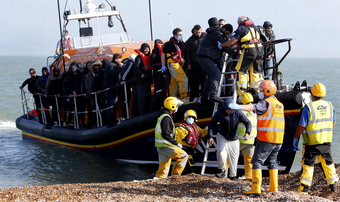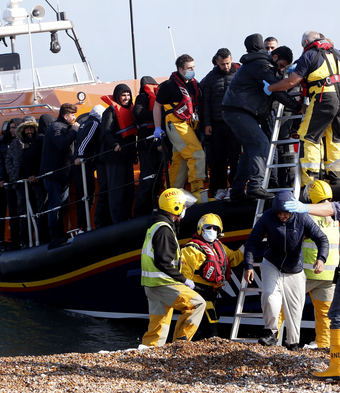The Queen: A steward of the King

CARE’s Head of Content Peter Ladd offers some reflections on the Queen’s funeral service and what we can learn from a life of stewardship and service.
The time was approaching 5 o’clock on Monday when the brutal reality of what has happened over the last few days really hit me.
With much of the nation, we were watching the Committal Service at St George’s Chapel, Windsor; after days of processions, proclamations, and Paddingtons, and after hundreds of thousands had filed in to St Giles Cathedral and Westminster Hall to pay their respects, Her Majesty was finally about to be lowered out of sight and into the family vault.
But before this could happen, the Crown Jeweller had to unscrew some of the great symbols of her reign from the coffin.
The crown, a symbol of her power and dominion. The orb, representing the rule of Christ. The sceptre, a sign of mercy and justice.
All three will be presented to King Charles III at his coronation next year.
The significance of the moment, amplified by silence and solemnity, was clear.
Now that Queen Elizabeth had died, these symbols of authority no longer belonged to her. She had come into the world with nothing, and she would leave it with nothing, regardless of who she had been or what she had owned during her life on earth.
In the ancient world, kings and nobles would often be buried with their possessions (and even, occasionally their wives or slaves), to prepare them for the afterlife. But that has never been the Christian view.
As Christians, we believe that our possessions, our time, and even the breath of life in our body, are all gifts from a gracious God, who loves to give good things to us, his special creations. And as gifts, they do not ultimately belong to us, but to God, whom we live for.
The Apostle Paul wrote this about our very bodies:
“Do you not know that your bodies are temples of the Holy Spirit, who is in you, whom you have received from God? You are not your own; you were bought at a price.”
In all things, we are his stewards.
The Queen knew well that her life was not her own. On the occasion of her 21st birthday, she made the following promise to her future subjects:
“I declare before you all that my whole life, whether it be long or short, shall be devoted to your service and the service of our great imperial family to which we all belong.”
In doing so, she committed herself to a life of service, both of others, and of God himself. As a committed Christian, she knew full well the expectations of human leaders laid out in Scripture, that “the one in authority is God’s servant for your good” (Romans 13:4), and she regularly highlighted that she looked to Christ’s servant-leadership as her example.
She lived as a steward, recognising that her earthly power and authority had been given to her by God, not for her to exploit, but to serve. As we heard at the State Funeral, during her Coronation in 1953 she pledged her allegiance to God before any person pledged allegiance to her.
In his address on Monday, the Archbishop of Canterbury highlighted that the Queen had pursued a way of life quite alien to many world leaders today: a life of true service and self-sacrifice, rather than a life of power and self-aggrandisement:
“People of loving service are rare in any walk of life. Leaders of loving service are still rarer. But in all cases those who serve will be loved and remembered when those who cling to power and privileges are long forgotten.”
Whatever one makes of Justin Welby’s time as Archbishop, those are brave words to say to a room filled with many of the world’s most powerful (and in a few cases, dictatorial) leaders, from President Erdogan of Turkey to President Bolsonaro of Brazil, and the Vice President of China Wang Qishan (and it’s possible the Archbishop had some of our own recent politicians in the UK in mind too…).
With the eyes of the world watching (estimates are that 4.1 billion watched the funeral service, the largest tv audience in history), we thank God that the Archbishop gave a clear challenge to those in power, not just about how they live, but for whom they live:
“Her Late Majesty’s example was not set through her position or her ambition, but through whom she followed…her service to so many people in this nation, the Commonwealth and the world, had its foundation in her following Christ - God himself - who said that he 'came not to be served but to serve and to give his life as a ransom for many.'”
Queen Elizabeth II recognised that her life was not her own, that she was a steward. She recognised that she - as we all are - was called to a life of service, for God and for her people. And above all, she recognised that it was not she who was the true monarch, but Jesus Christ.
There was a certain irony in that the one thing which many associate with modern funerals - eulogies from family members - was missing on Monday. Instead, the focus, whether through prayer, choral anthems or sermons, was on someone else: God himself.
There has rightly been much focus on the Queen’s many wonderful qualities during the last couple of weeks; one headline in the Guardian even read “The remarkable reign of the platinum queen was almost too perfect.”. Yet she knew full well that she was not perfect.
In her 2011 Christmas Broadcast, she spoke with remarkable candour about the human condition, which she knew affected her as much as anyone else:
“Although we are capable of great acts of kindness, history teaches us that we sometimes need saving from ourselves - from our recklessness or our greed. God sent into the world a unique person - neither a philosopher nor a general (important though they are) - but a Saviour, with the power to forgive.”
“Although we are capable of great acts of kindness, history teaches us that we sometimes need saving from ourselves - from our recklessness or our greed. God sent into the world a unique person - neither a philosopher nor a general (important though they are) - but a Saviour, with the power to forgive.”
Queen Elizabeth II knew that Jesus Christ was the true King. She knew that it was God who had appointed her with power and authority. She knew that she was his servant and his steward. And she knew that at his name, “every knee should bow, in heaven and on earth and under the earth”, including hers.
It was surely no accident in a service planned as meticulously as this, that the final words of the final hymn were as follows:
"Finish then thy new creation, pure and spotless let us be; let us see thy great salvation, perfectly restored in thee, changed from glory into glory till in heaven we take our place, till we cast our crowns before thee, lost in wonder, love, and praise!"
Her Majesty will be one of the few on that day, when we stand before the throne, to have actually worn a crown during her life. We rejoice in the faith of our sister who will gladly lay that crown down at the feet of King Jesus, her earthly task complete.






